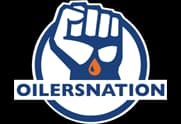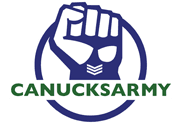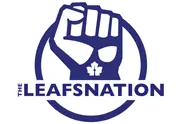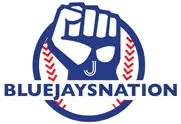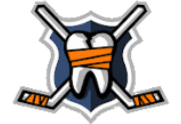Home and Home with Detroit? Better call up Domi

Editors note: Please allow me to welcome to the team, History Of Fights. It is an account I have followed for years on Twitter and we are so excited to have him contributing on the site. Join us in welcoming him!
Back in the late 80s, early 90s, a 3-hour game wasn’t uncommon, whereas today’s game seems to be a neatly wrapped package, resembling an All-Star game, albeit without the scoring. A cookie cutter contest that usually comes in at a squeaky clean 2 ½ hours. It seems that a lot of the drama of yesteryear has been removed or eliminated altogether to speed up the game, but took away from the overall entertainment value.
The bad blood between Toronto and Detroit goes back to the Original Six era. However, during the 70s, 80s, the 90s, it wasn’t uncommon for the two rivals to engage in bench-clearing brawls, multi-fight games, off-ice antics, and stuff you just don’t see in today’s game. There were brotherhoods formed, as there usually are when you go to war with a group of close guys who came up through the ranks together.
Today, with players changing teams constantly, and role players all but eliminated, the passion has been sucked out of the game almost completely in favor of tv contracts, safety, & speed. During the 1989-90 season, teams played their divisional rivals 8 times. Never mind the idea that you might face that same team again, another 7 times, in a hotly contested, emotional, playoff series. This would inevitably lead to bad blood. Toronto and Detroit had 24 fights in 10 games that season, which includes two preseason games 1. Today, there are several teams who don’t have that many fights over an 82 game schedule, let alone with their biggest rival in just 10 contests!
The set up for this particular dust-up started back on December 27th. Detroit coach Jacques Demers was without his number one weapon Bob Probert, who was unable to play due to his legal issues during the 1988-89 season. Without Probert, the Wings had been auditioning some low budget, long in the tooth tough guys, along with some younger players eager to cut their teeth in the rough and tumble Norris. Minus Probert, the Leafs made it clear they were going to try and gain the physical edge against the Wings. Brian Curran and Kevin McClelland had a scrap early on, then it was Wendel Clark scoring a victory over Greg Adams, and finally, it was John Kordic drawing the decision over John Mokosak. At this point Detroit’s top gun Joey Kocur must have felt left out and decided to flash his badge. Kocur couldn’t find a taker. Kocur tried desperately to get Rob Ramage to go, but Ramage
wanted no part of him. This created the tipping point. As Kevin McClelland, skated towards the end boards, behind the net, he got his stick up in Ramage’s eye. After several minutes of lying on the ice, Ramage got back on his skates, made a beeline for the Wings bench, and gave Jacques Demers an earful, apparently thinking it was Jacques who gave the order to McClelland. After Ramage departed, it was Doug Carpenter who could be heard giving the Wings an earful, mostly Greg Adams, but probably
Kocur too. The game continued with more hitting, and some cheap stuff, but no more fighting. They would save that for a game back in Detroit, on March 2nd, 1990.
Toronto must have had plans for this March 2nd night, the front end of a home and home because they brought up a kid from Newmarket by the name of Tie Domi, their 2nd round draft pick in 1988. Detroit had already made their own move 4 days prior, calling up Chris McRae from the Adirondack Red Wings. McRae, a bit of a minor league journeyman, and the younger brother of noted pugilist Basil McRae was playing in his 2nd game with Detroit. Another omission from this game, besides Probert, was Wendel Clark who was scratched due to injury. Even without Probert & Clark, both teams had more than enough muscle to produce a physical contest. Toronto had: John Kordic, Brian Curran, Luke Richardson, Todd Gill, & now Domi as the main battlers; while Detroit dressed: Joey Kocur, Kevin McClelland, Randy McKay, Lee Norwood, & the aforementioned Chris McRae.
It was more important to make sure you had a little extra in the tank going into these “Chuck” Norris style grudge matchups, then to be left shorthanded when the powder keg went off. At this time the Norris division was filled with toughness. Chicago had Bob McGill, Wayne Van Dorp, Dave Manson, Cam Russell, Al Secord, & Mike Peluso. St. Louis featured Kelly Chase, Tony Twist, Robert Dirk, & Sergio Momesso. Minnesota had Shane Churla, Basil McRae, Mark Tinordi, Link Gaetz, & Neil Wilkinson. Lineups like these always had the potential for big-time fireworks. It didn’t take long for things to get going, as right from the get-go, it was a hard checking, glove dropping kind of the first period that lasted 1 hour, and featured 132 penalty minutes, capped off by Jacques Demers returning the favor and getting in Doug Carpenter’s grill. After the dust settled, some 3 ½ hours later, and having rung up 272 penalty minutes, it was the All-Star Steve Yzerman, who would score his second of the night, at 3:44 of Overtime, giving the Red Wings a 3-2 victory.
One would think the next night, in Toronto, a similar display of bad blood would spill over, right? Actually, the game was fairly clean, with only a couple of scraps. Gerard Gallant would finally get Rob Ramage to dance, and the main bout was the two call-ups, Tie Domi; Chris McRae in an average tilt. Domi would be returned shortly thereafter. His line: 2 games played; 42 penalty minutes. McRae would play 7 games and put up 45 penalty minutes. I often hear how a game like this, or a period, or even just one scrap can settle a game down, and clearly, this did.
It was that kind of passion, bad blood, real rivalries, and deep emotional hatred, that drew fans to the game and kept them coming back for more. Yes, I’m sure there is a very small group of people who would pay good money, hoping to just to see a fight. I preferred the game when the entire package was featured on a nightly basis, and the potential for a long, fight-filled game was at the least, possible. A lot of guys who may never have seen the light of the NHL saw call up time in those days when a little
extra muscle was needed. Some even parlayed those call-ups into a career, like Tie Domi.



